
Proposed regulations that would dramatically hike capital requirements for the nation's largest banks may undergo significant changes, which could include a 50 percent reduction in the current mandated increase, according to sources cited by The Wall Street Journal on May 19.
Proposed Capital Requirements
Roundtable Response
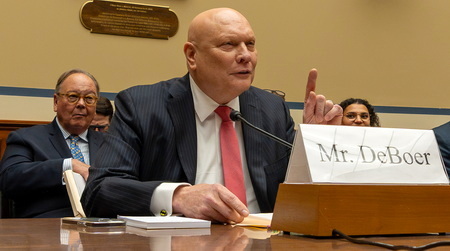
Policymakers Signal Adjustments
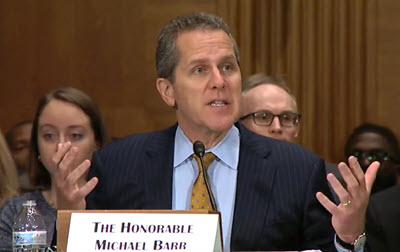
The Roundtable’s all-member Annual Meeting on June 20-21 in Washington, DC will address Basel III Endgame and other capital and credit issues impacting CRE.
# # #

RER Chairman and Suffolk CEO John Fish, above, convened a meeting this week of leading construction company CEOS to sign on to the “Million Women in Construction Community Pledge,” led by U.S. Commerce Department Secretary Gina Raimondo. (UPI, May 21 and ConstructionDive, May 22)
Committed to Workforce Expansion
Call for Greater Industry Participation
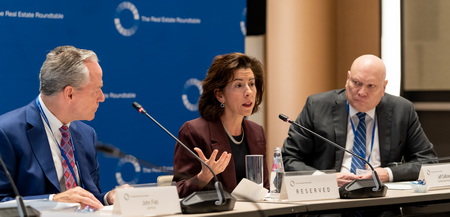
For questions about the program or to pledge, email WomenInConstruction@doc.gov
# # #
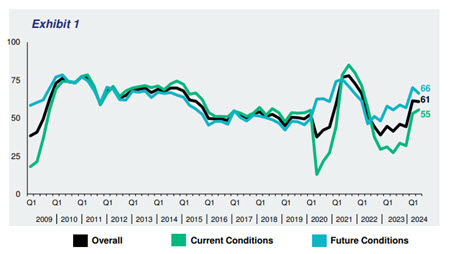
Commercial real estate executives expressed tempered optimism about property markets in The Real Estate Roundtable’s Q2 2024 Sentiment Index as high interest rates and liquidity challenges linger. The Q2 Sentiment Index registered the same overall score of 61 from the previous quarter as uncertainty persists about future asset values and availability of capital.
The Q2 Sentiment Index topline findings also include:

[The healthy momentum of the retail sector was affirmed by ICSC CEO and President Tom McGee, above left, this week during an interview with DLC Management. He stated that the demand for physical retail is incredibly strong, but the supply of net new construction is constrained because of the cost of capital and construction. “Retailers are just not using stores for conventional shopping purposes but also increasingly using them as fulfillment centers, so the demand for space is quite high.” (DLC Management on X, May 23)]
Data for the Q2 survey was gathered by Chicago-based Ferguson Partners on The Roundtable’s behalf in April. See the full Q2 report.
# # #

The Real Estate Roundtable asked House lawmakers on Wednesday to direct the U.S. Department of Housing and Urban Development (HUD) to reconsider a recent federal energy codes rule because it does not adequately consider impacts on affordable housing. (Roundtable Statement, May 22 for House Hearing)
HUD’s Energy Codes Rule
Roundtable Recommendations
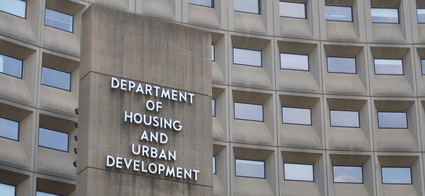
This week’s hearing follows House testimony recently delivered by Roundtable President and CEO Jeff DeBoer, who reinforced the messages that the health of commercial and residential real estate markets are intertwined—and excessive regulations that make housing prices and rents unaffordable for working-class families must be avoided. (DeBoer’s April 30 oral statement and written testimony | Roundtable Weekly, April 30)
# # #

Frank G. Creamer, Jr., a founding member of The Real Estate Roundtable and long-serving chairman of its Tax Policy Advisory Committee (TPAC), passed away on May 17. (Obituary)
Industry Mentor
A memorial service is scheduled for June 5 in Center Moriches, NY followed by a June 6 funeral Mass at St. John the Evangelist Roman Catholic Church. In lieu of flowers, a donation in his memory can be made to the Tunnels to Towers Foundation. (See obituary for details)